Sex, Love, and Addiction
On Sex, Love, and Addiction, Dr. Rob Weiss, sex therapist and author of a dozen books on sex and relationship healing, interviews global experts like Dr’s. Sue Johnson, Harville Hendrix, Dr. Stan Tatkin, and Helen Fisher, Dr. Kenneth Adams among others. This podcast features robust discussions focused on healing from chronic infidelity, cheating, porn, and sex addiction, along with the pain of relationship betrayal. Dr. Rob is Chief Clinical Officer for Seeking integrity Treatment Centers. He is a 30-year licensed therapist, a Ph.D. sexologist, and author Sex Addiction 101, Prodependence, and Out of the Doghouse, among other books. This podcast is dedicated to bringing information, advice, and direction from experts around the world to those seeking answers to some of life’s most challenging questions.
Episodes
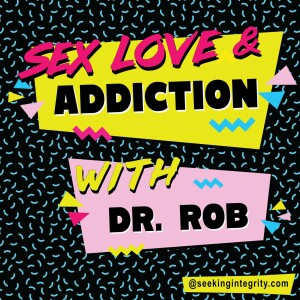
Thursday Oct 15, 2020
Thursday Oct 15, 2020
Rob and Tami dive into whether you can rewire your sexual tastes after being exposed to hardcore porn. They also discuss how to have a successful open relationship (when you’re not an addict) and so much more on this week’s episode! TAKEAWAYS: [0:30] Can I rewire my sexual tastes? [6:10] I don’t think I can handle my partner relapsing. What can I do? [10:45] How can we have a successful open relationship? [13:45] Should addicts reveal their addiction to their family members? [18:00] I stumbled upon child porn and I felt guilty ever since watching it. How do I get over this? [19:45] How do you create healthy boundaries as a sex addict? [24:15] My husband of 28 years has paid for prostitutes for the last 8 years. Will this pain ever end? RESOURCES: Seekingintegrity.com Email Tami: Tami@Seekingintegrity.com Sexandrelationshiphealing.com Intherooms.com Out of the Doghouse: A Step-by-Step Relationship-Saving Guide for Men Caught Cheating Book by Robert Weiss Prodependence: Moving Beyond Codependency Book by Robert Weiss Sex Addiction 101: A Basic Guide to Healing from Sex, Porn, and Love Addiction by Robert Weiss Out of the Doghouse: A Step-by-Step Relationship-Saving Guide for Men Caught Cheating Book by Robert Weiss Cruise Control Book by Robert Weiss
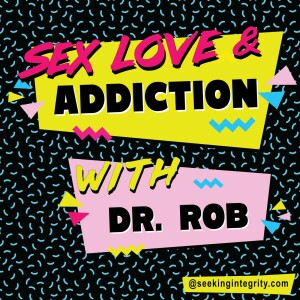
Thursday Sep 24, 2020
Thursday Sep 24, 2020
Kelley Gunter is an internationally acclaimed speaker, life coach, and author of the memoir, You Have Such a Pretty Face. She is a survivor, emotional warrior, and a woman in recovery who is unafraid to tell her truth. She went through a 243lb weight loss journey and opens up about her multiple addictions in this week's episode. If she can get through to the other side, so can you. TAKEAWAYS: [2:05] For many women, it's very hard to tell their truth due to society's expectations of them. [3:35] Kelley shares why now is the perfect time to share her truth and her story. [4:05] Kelley made a promise to God that if she could get past this dark time in her life, she will use her voice to empower others. [6:15] When Kelley was 400lb, people would often tell her it was 'such a shame' she was so overweight because 'she had such a pretty face'. It killed her soul every time she heard that. [7:40] When trying to give a compliment, drop out the qualifier. Just say you're pretty! [9:10] Kelley shares her experiences on what it was like to be 'that fat girl'. [11:25] A lot of women end up consciously gaining a large amount of weight because it makes them feel safe and keeps an arm's distance away from men. Kelley shares her thoughts on this. [12:45] How does someone gain 400lb? [14:45] Our pain speaks to us in different languages. [21:10] Kelley was terribly insecure and would often try to buy everybody’s love. [23:50] Most of our addictions don’t come up as ‘just one thing’. It’s a host of issues. [24:45] Kelley’s gambling issues brought everything and her whole life to her knees. [26:30] Kelley knew she wasn’t a bad person, she was a broken person. We all make mistakes, but we aren’t our mistakes. [31:40] Remember, tomorrow is a new day. [34:45] Kelley talks about her upcoming second book. RESOURCES: The Porn Panic: Is Porn a ‘Public Health Crisis’? Sex and Relationship Healing @RobWeissMSW Sex Addiction 101 Seeking Integrity Cruise Control: Understanding Sex Addiction in Gay Men Prodependence: Moving Beyond Codependency Connect with Kelley: Kelleygunter.com Kelley’s book: You Have Such a Pretty Face QUOTES: “I was in such a dark place in my life, I was praying to God to let me die, and I couldn't find any truthful stories of people who had made mistakes, people who had suffered, and came out on the other side of it.” “The world can be very, very cruel. Even more painful than the mean comments was that I was just invisible. The world just sees right past you, like you don't even matter.” “Food was the one thing I could go to that would never let me down. I wasn't trying to push people away, but it was the only thing I loved and it loved me back.” “Unhealed trauma will sit quietly in the control room of your soul dictating every calamity.”
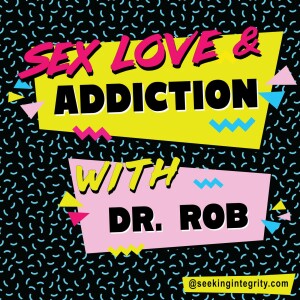
Thursday Aug 27, 2020
Thursday Aug 27, 2020
Jenna Riemersma is the Clinical Director of The Atlanta Center for Relational Healing. She is a teaching faculty member for the International Institute of Trauma and Addiction Professionals (IITAP). Jenna holds a Master's degree in Public Policy from Harvard University and a Masters’ Degree in Professional Counseling from Richmont Graduate University. Jenna is the recent author of Altogether You, which better explains IFS therapy and how every part of you is meant to be (and should not be shamed for it). TAKEAWAYS: [3:00] What is Jenna’s book about and why did she write it? [5:15] How do we best manage or process the different parts of ourselves? [7:15] We each have a core or a deep self within us. It is whole and it consists of the 8 C’s. However, our different parts (traumas) jump up and obstruct our access to our deep self. [10:55] Dr. Rob shares an example to better understand what Jenna means. [14:30] How do you bring healing to your different parts to become connected to your core self? [15:50] Why do we have such high relapse rates in addiction? [18:50] When we live in our core self, we instinctively embrace all parts. [21:45] Rage and sex addiction are not okay, but the part underneath it all is what we’re trying to help: the individual. [24:10] We all have parts at war within ourselves. For addicts, it might be they want to act out sexually and at the same time, they desperately want to be faithful to their partner. [28:00] IFS is applicable not for addiction, but for relationships and conflict. [33:15] How does MDMA help people with complex PTSD? RESOURCES: The Porn Panic: Is Porn a ‘Public Health Crisis’? Sex and Relationship Healing @RobWeissMSW Sex Addiction 101 Seeking Integrity Cruise Control: Understanding Sex Addiction in Gay Men Prodependence: Moving Beyond Codependency Connect with Jenna Riemersma: Jennariemersma.com Jenna’s book: Altogether You QUOTES: “The more effective way to bring healing to a part is by recognizing this is a wonderful part that’s gotten stuck in a very damaging role.” “It’s really about befriending the parts of us of which we are the most ashamed and the parts we feel are the most unacceptable.” “All parts of them are welcome and there’s another way besides shaming ourselves that we can heal.” “We all have parts at war and they look different in all of us.”
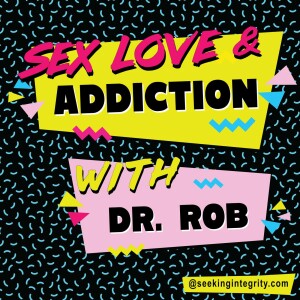
Thursday Jul 23, 2020
Thursday Jul 23, 2020
Dr. Jamie Marich is an EMDR therapy master trainer and the author of several books including, Trauma and the Twelve Steps and Trauma Made Simple. On this week’s show, Dr. Jamie discusses the healing process between the Twelve Step program and addressing your trauma. She also discusses her philosophy with the Twelve Step program and why it’s important to update the language in it to help people grow and recover. TAKEAWAYS: [3:00] Dr. Jamie has recently revised one of her books, Trauma and the Twelve Steps. [4:00] People who have worked heavily in the trauma world had a low opinion about the Twelve Steps and vice versa. Why is that? [5:45] Wounds can come in all shapes and sizes, but healing can take on all different forms. [9:00] People use the Twelve Steps as commands, but Dr. Jamie has always seen it as suggested steps. [13:35] The wound itself is not the issue in trauma. It’s how it gets addressed and healed that is. [14:20] A lot of people think they have dealt with their trauma, but they really haven’t. [19:35] Admitting your powerlessness over alcohol or your addiction does not mean you are a powerless person. [21:45] We have to be willing to update the language with the times. The Twelve Steps was written in the 1930s. [28:30] Trauma is never fully healed, but it does evolve. [32:30] We have to validate ourselves, the reality of what’s happening, and we have to validate each other, and then we have to challenge it. [35:35] Is it true we will never truly ‘thrive’ in life? RESOURCES: The Porn Panic: Is Porn a ‘Public Health Crisis’? Sex and Relationship Healing @RobWeissMSW Sex Addiction 101 Seeking Integrity Cruise Control: Understanding Sex Addiction in Gay Men Prodependence: Moving Beyond Codependency Connect with Dr. Jamie: Dr. Jamie Marich Dr. Jamie’s Book: Trauma and the 12 Steps, Revised and Expanded: An Inclusive Guide to Enhancing Recovery Traumamadesimple.com Instituteforcreativemindfulness.com Jamie Marich on Twitter QUOTES: “Why is trauma not the problem? The wound itself is not the issue. It’s how does it get addressed, how does it get healed, and what is the existing system of the person experiencing it.” “There’s a lot of people who think they’ve dealt with their trauma or it hasn’t affected them, but they really haven’t.” “A principle I teach in trauma-informed care is there is always a modification, and I think more people would be opened to the twelve steps if we allowed for that.” “After everything you’ve been through, it’s no wonder you’ve become an alcoholic, what are you going to do about it now?”
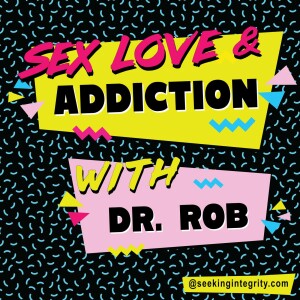
Thursday Jul 16, 2020
Thursday Jul 16, 2020
Michelle Holleman is a Sex Addiction Therapist based out of Charlotte, North Carolina. Michelle councils pre-teens and teenagers about their porn addiction habits and teaches children the difference between reality and fiction. Young children are being exposed to porn and it can deeply impact their brain. Michelle shares seven tips parents can use to have a healthy conversation with their children about porn, and why they need to talk about it with them; not avoid it. TAKEAWAYS: [1:45] Who is Michelle and what does she do? [3:45] Michelle works with a lot of teens who get caught with porn on their school computer. [6:25] Usually when Michelle gets called in, parents are very concerned. Michelle tries to calm them down and normalize the situation. [9:35] Anything that can turn into porn, will be turned into porn, which means that there are pornographic cartoons out there. [12:00] Parents are very bad at talking to their children about sex. They mostly explain how babies get made, but not the act itself. [13:35] Locking down your child’s phone doesn’t solve the underlying problem. If it’s not at home, they’ll be exposed to it through their friends. [18:15] How do the conversations differ between a pre-teen child vs. teenager about the conversation of looking at porn? [21:25] Between the ages of 8 and 16, 90% of children have seen porn by that age. [22:45] Porn changes our children’s brains. [24:15] It’s important to tell the truth when talking to your children. [28:45] Don’t punish your child for looking at porn, it sends the wrong message and they will try to hide it from you. [32:55] The real problem with porn is that it takes the intimacy and connection in sex away. RESOURCES: The Porn Panic: Is Porn a ‘Public Health Crisis’? Sex and Relationship Healing @RobWeissMSW Sex Addiction 101 Seeking Integrity Cruise Control: Understanding Sex Addiction in Gay Men Prodependence: Moving Beyond Codependency Connect with Michelle: Lifehealingcounseling.com & LinkedIn QUOTES: “The parents get called in and then they start to find out how much porn is on the computer, and that’s where it becomes alarming.” “There are ways we can teach our kids early on about pornography and the difference between porn and healthy sex, which includes intimacy.” “The average age kids are actually seeing porn is around 9-years old the first time they see it and the biggest consumers of porn are boys ages 12-17.” “Between the ages of 8 and 16, 90% of children have seen porn by that age.”
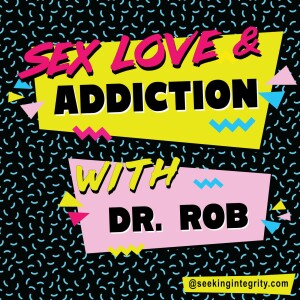
Thursday Jul 09, 2020
Thursday Jul 09, 2020
Dr. Louise Stanger is an Ivy League Award winner (2019 Interventionist of the Year from DB Resources in London and McLean Hospital – an affiliate of Harvard), educated social worker, popular author, internationally renowned clinician, interventionist and speaker and an expert on mental health, addiction, process disorders, and chronic pain. In this episode, Dr. Louise provides insight as to how families can best cope and provide support when it comes to a loved one’s addiction. TAKEAWAYS: [2:45] I can’t stand my family, but I can’t live without them. [6:55] Dr. Louise’s family was very successful in their careers. However, they all had underlying problems with their mental health. [8:15] We can’t turn back time and be 4 again to get our needs met, but even as we grow into adults, we have cravings to get our needs met from our family. [9:00] Sometimes we have to grieve the fact that we never got our needs met by our parents. [10:55] When it comes to our relationships, we might have to live without our loved ones in order for us to fully grow. [12:00] Why is it hard for us to not see the abuse happening to us? [15:20] Your unwillingness to change can be the cause of stalled progress. You don’t have to change the way you love someone, but by changing the behaviors/actions around that person can help them progress in their own therapy and healing. [16:45] What does a good intervention look like? [23:20] As a family member, it’s very important to take care of yourself spiritually and emotionally. [25:00] When an addict comes back from therapy, why can’t it just all go back to the way it was? [26:50] Have you ever said to yourself: ‘If he/she would just fix themselves, everything would be fine.’ Dr. Louise offers advice on how to better approach this. [29:20] We don’t hear what we don’t want to hear. This is why having an outside/expert opinion matters because it allows you to hear what your spouse has been saying to you for years for the very first time. RESOURCES: The Porn Panic: Is Porn a ‘Public Health Crisis’? Sex and Relationship Healing @RobWeissMSW Sex Addiction 101 Seeking Integrity Cruise Control: Understanding Sex Addiction in Gay Men Prodependence: Moving Beyond Codependency Connect with Dr. Louise: Website & Learn to Thrive Call Dr. Louise: 619-507-1699 The Definitive Guide to Addiction Interventions: A Collective Strategy by Dr. Louise Stanger QUOTES: “People don’t call me unless their hearts are hurting and there’s some kind of event or crisis that happened with their loved one.” “Relationships with mothers are tough. Like many of us, we are people pleasers. They really want that approval. And all of a sudden, when they’re 40 or 50, they realize they’re never going to get that.” “There’s always been an elephant in the middle of the living room, that behavior has been there, but somehow they haven’t been able to face it until there’s this tipping point.” “Family & friend work is so important because nothing changes until something changes. And if you’re sending your loved one away to be fixed, and then you expect them to come back without a parallel process, that person is doomed.”
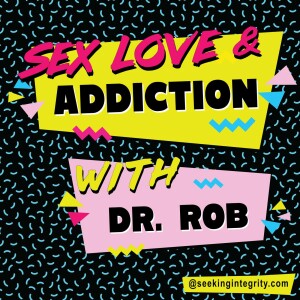
Thursday Jun 25, 2020
Thursday Jun 25, 2020
Troy L. Love is a two-time Amazon Best-Selling Author and has a third book, A Year of Self-Love, which was published in 2019. Troy shares why we feel such deep shame and dives into the six attachment wounds we carry around after a traumatic childhood. He also helps visualize these six attachment wounds through characters to help people in recovery better understand themselves and their journey. TAKEAWAYS: [2:45] Troy shares his journey and why he is passionate about helping people with trauma. [6:15] It took Troy roughly 10 years to feel grounded enough to move forward with his trauma and help other people. [7:15] How is shame related to addiction. [10:15] Our shame is connected to our attachment wounds. There are six attachment wounds: Loss, Neglect, Rejection, Abandonment, Betrayal, and Abuse. [12:25] How does someone discover whether or not they have childhood trauma or not? [15:45] Can we get over these childhood traumas? [19:30] Narcissism can be cured. [22:55] Our loudest voice is our own judgments. [29:15] How can someone best recover from their own inadequacies when they have a partner at home who is very upset and hurt over the actions they have done? [32:15] Darling, I know you suffer, but I am here for you. [34:05] The use of compassion and empathy are the only ways out! [36:20] There are places all over the world that can help you. Your location to get good care is no longer a barrier. RESOURCES: The Porn Panic: Is Porn a ‘Public Health Crisis’? Sex and Relationship Healing @RobWeissMSW Sex Addiction 101 Seeking Integrity Cruise Control: Understanding Sex Addiction in Gay Men Prodependence: Moving Beyond Codependency Connect with Troy: Website & A Year of Self Love by Troy L. Love QUOTES: “Shame is the deep and abiding belief or experience that I am flawed and defective and therefore unworthy of love or belonging.” “I wasn’t acting out anymore, but man, I was still causing damage and it was fueled by the shame.” “Shame is anger turned inwards and when you stop being angry at yourself, you might start biting at people around you.” “As long as you can start doing the work and start to create some empathy and someplace, that creates space for your spouse to also begin to heal.”
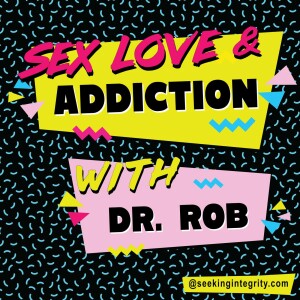
Thursday Jun 18, 2020
Thursday Jun 18, 2020
Lulu Cook is an expert in eating disorders and food addiction. She is a coach and dietitian. Lulu helps her clients feel good about their emotional and physical health. Food addiction can show up in many ways and it can be a big struggle to stop binge eating. Lulu provides information on why people typically develop eating disorders, how to best recover/manage their relationship with food, and so much more on today’s episode! TAKEAWAYS: [3:25] Lulu shares her food addiction journey and story. [6:10] What is the difference between an eating disorder and food addiction? [14:00] Do people with eating disorders also typically have body dystopia? [18:00] Why do people typically develop eating disorders? [24:20] People need to eat food. How does Lulu help manage her client’s addictions? [29:25] Food addiction can destroy people’s lives. Lulu shares some examples. [31:05] How do weight and food fit together? If someone is big-boned or a little heavy, how do they recognize they might just like to eat vs. have an addiction? [33:05] Food touches everything in our lives. Our relationships, faith, environment, and health. [38:20] Lulu works with clients all over the world, so location is no obstacle if you’re interested in getting some help! RESOURCES: The Porn Panic: Is Porn a ‘Public Health Crisis’? Sex and Relationship Healing @RobWeissMSW Sex Addiction 101 Seeking Integrity Cruise Control: Understanding Sex Addiction in Gay Men Prodependence: Moving Beyond Codependency Connect with Lulu: Lulucook.com & Email: Lulu@gutfeelingcoaching.com QUOTES: “Food is medicine and the impact of food on my mood was so profound.” “A higher proportion of people who are in bigger bodies will have binging behaviors than smaller people, but that’s not always necessarily the case.” “This stuff is not easy. We don’t get to stop eating if we want to keep living. We just need to learn how to nourish ourselves in ways that feel more healthy.” “I came for the vanity, but I stayed for my sanity.”
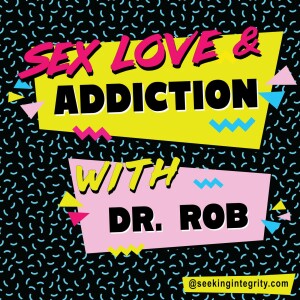
Thursday May 28, 2020
Thursday May 28, 2020
Helen E. Fisher, PhD biological anthropologist, is a Senior Research Fellow, at The Kinsey Institute, Indiana University. She has written six books on the evolution, biology, and psychology of human sexuality, monogamy, adultery and divorce, gender differences in the brain, the neural chemistry of romantic love and attachment, human biologically-based personality styles, why we fall in love with one person rather than another, hooking up, friends with benefits, living together and other current trends, and the future of relationships-- what she calls: slow love. In this week’s episode, Dr. Helen shares how people fall into love addiction and why it can feel hopeless to find the right partner to spend your life with. TAKEAWAYS: [3:00] How did Dr. Helen become a sex expert? [6:15] There are a lot of misunderstandings about how men and sex. [8:10] What is love addiction? How is it different from sex addiction? [10:00] Romantic love addiction can actually be very positive. [12:20] What do you lose when you get rejected? An important partner to have babies with. [16:45] How can couples celebrate sexuality? [20:00] A good positive relationship lowers blood pressure, cortisol, and more! [22:00] Romantic love grows quickly, but attachment grows slowly. [24:00] How can we better help love addicted people? [25:30] Covid-19 is a good time to find love? [29:25] In Dr. Helen’s study with Match, 34% of singles have had sex before the first date. [31:35] Women are getting married later in life. RESOURCES: The Porn Panic: Is Porn a ‘Public Health Crisis’? Sex and Relationship Healing @RobWeissMSW Sex Addiction 101 Seeking Integrity Cruise Control: Understanding Sex Addiction in Gay Men Prodependence: Moving Beyond Codependency Connect with Helen: Helenfisher.com & Theanatomyoflove.com QUOTES: “Both men and women have some tremendously effective traits and we need to put our heads together, but to pretend we’re exactly alike is factually incorrect .” “When you’re madly in love with the right person, at the right time, with the right vision, is probably an adaptive mechanism to send their DNA into tomorrow.” “You’re threatened with genetic extinction when you’ve been rejected in love.” “People in long-term good partnerships, positive relationships, can live up to 5-7 years longer.”

Thursday May 21, 2020
Thursday May 21, 2020
Dr. Rob is back with a continuation of last week’s episode about explaining what prodependence is. How can we better navigate and not stigmatize the people who are just trying to care for their loved ones? Spouses feel terrible enough being married to an active addict, our jobs as therapists is to not make them question themselves, but to help them through their feelings. They are in crisis mode and this means therapists need to do crisis counseling, not codependency counseling. Dr. Rob is tired of seeing spouses blamed for codependency when they are going through a completely natural reaction. TAKEAWAYS: [1:45] The women who wrote these books about codependency had traumatic abusive fathers and they ended up married to alcoholic or abusive husbands. However, this does not mean it’s a universal experience. [4:50] Women were focused on paving their own way in the 1980s. It was needed, but the writings of that time also reflect that. Today? We can tell a different story, but we’re still stuck in the 1980s dialogue. [7:40] So many addicts say, “I could get sober if my wife wouldn’t nag so much.” [11:00] A loved one is in a crisis and they need support, not stigmatism or judgement. [11:25] How does Dr. Rob define a crisis? [12:40] How do you help someone through a crisis? What are the steps in crisis counseling? Dr. Rob explains. [14:45] The partner has been victimized and they should not be victimized further by their therapist. [19:25] We ideally should respond to addicts with love and compassion, to remind them that they are loved. [25:20] Codependency tells people they’re living in denial. They’re not. [28:40] How do addicts feel about codependency? [31:35] Dr. Rob shares what he helps people with at his treatment center. [32:15] Some treatment centers cut the family members off from treatment and they lose their connection with the addict. [33:55] With social distancing, how are people staying connected? [34:55] Dr. Rob believes two broken people working to heal together are going to get further than individuals trying to heal by themselves. RESOURCES: The Porn Panic: Is Porn a ‘Public Health Crisis’? Sex and Relationship Healing @RobWeissMSW Sex Addiction 101 Seeking Integrity Cruise Control: Understanding Sex Addiction in Gay Men Prodependence: Moving Beyond Codependency It Will Never Happen to Me! by Claudia Black Women Who Love Too Much by Robin Norwood Codependent No More by Melody Beattie Diagnosing and Treating Co‑dependence by Timmen L. Cermak QUOTES: “91% of therapists believe that the person who was married to an active addict is in a major crisis.” “Until their family life is settled down, their loved one has gotten sober, they are in a crisis too.” “My job, as a therapist, is to help them through the crisis. Not ask them to question or doubt themselves.” “Crisis is a state of emotional turmoil for an acute emotional reaction to a powerful stimulus or demand.” “With the addicts in my life that I want to deepen my connection with, I say to them, I love you, whether you’re using or not, I love you whatever state you’re in, and if you need me, I’ll come and sit with you.”
